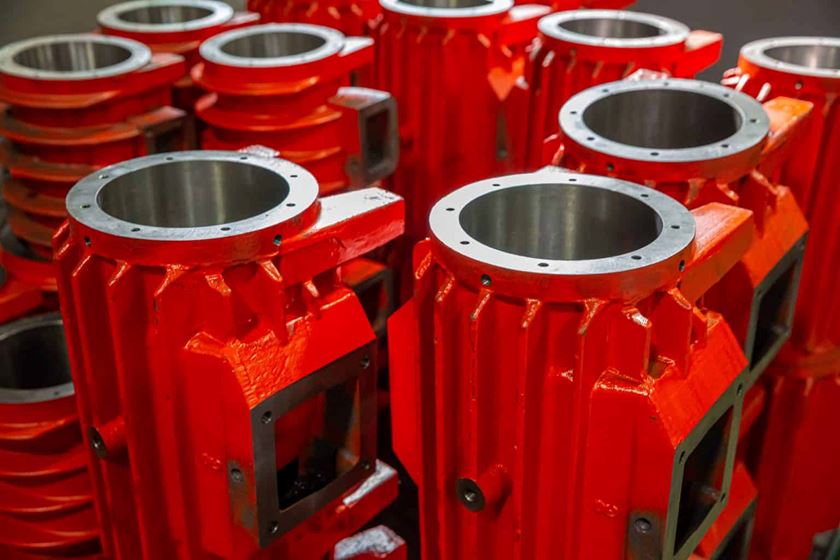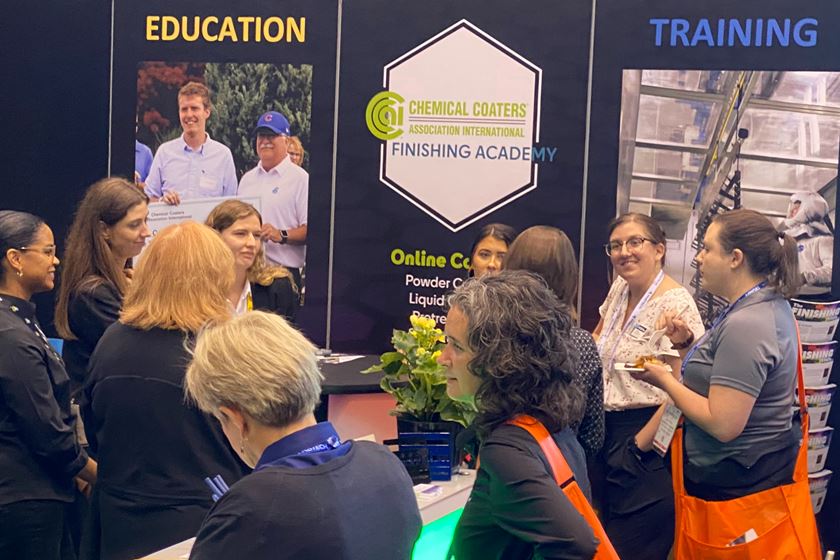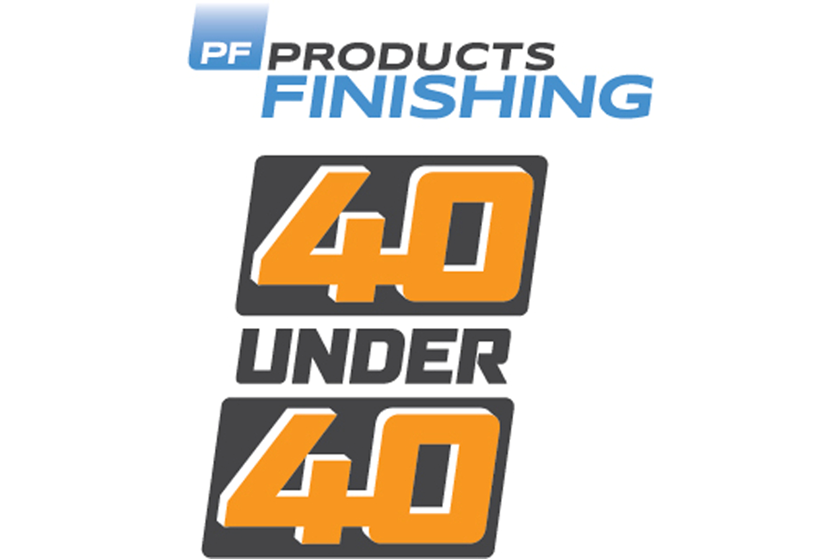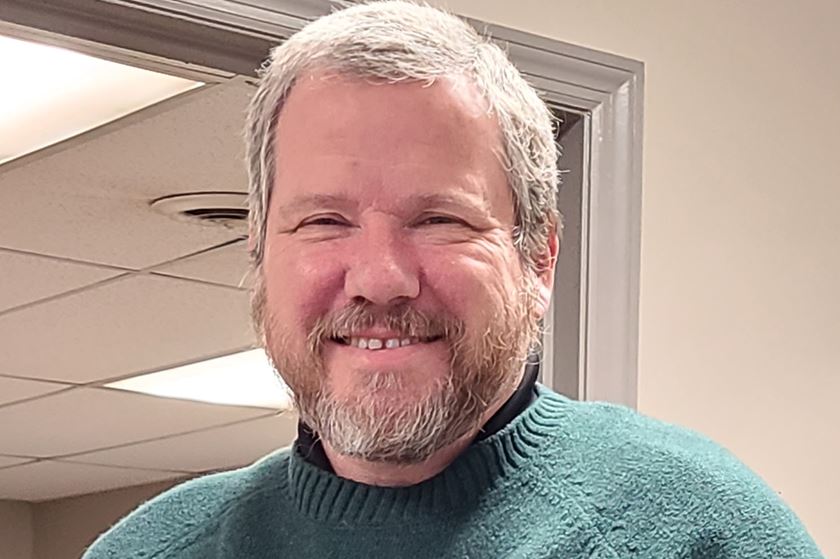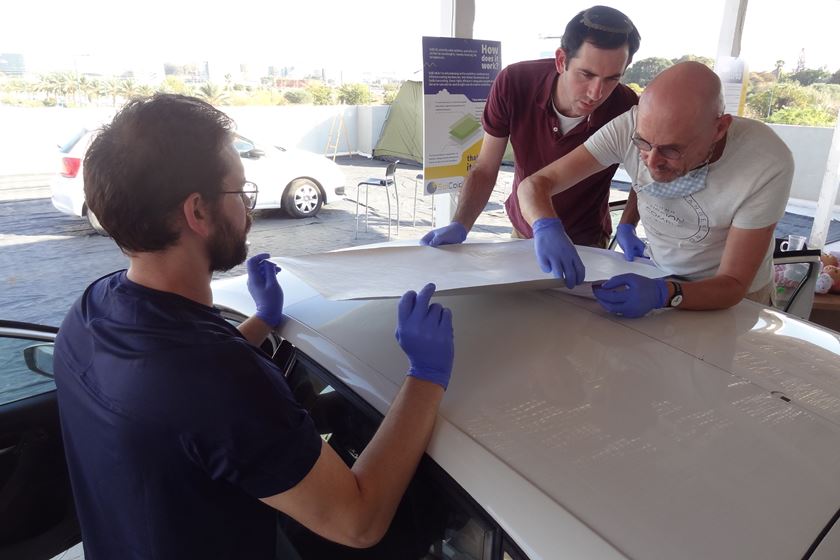A Tale of Two Shops: Machining and Plating
Seattle machine shop buys finishing operation to convert to Nadcap.
#masking #pollutioncontrol
Three years ago, Dean Handaly and his best friend from high school, Robert Peha, decided they were brave enough to dive into the world of business ownership when they purchased IDL Precision Machining in Mukilteo, Washington, just north of Seattle.
Handaly was corporate America all the way, a one-time controller for Microsoft and another tech company. Peha was an aerospace engineer, helping design parts and systems for equipment that machine shops would turn into reality from square aluminum billets.
Featured Content
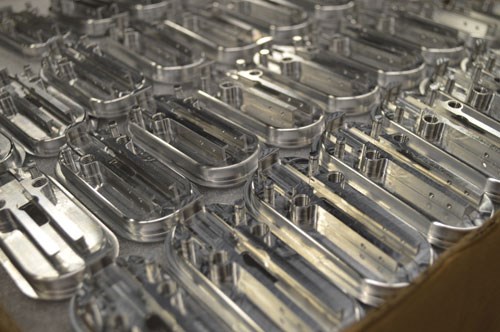
Most of IDL’s customers center around the medical, aerospace and electronics industries.
“We’ve known each other since we were teenagers, and being business partners was just something we’ve always thought about,” Handaly says. “We became partners several years ago on a venture, then went back to our careers. But we decided to become partners again.”
Working with brokers in 2012, Handaly and Peha came across IDL, a shop that began in 1987 and focuses on CNC milling and turning for its customers. They looked at various other companies before settling on IDL, which met their criteria and passed their due diligence tests.
With customers centered in the major medical, aerospace and electronics industries, Handaly and Peha took over IDL and used their corporate finance and engineering backgrounds to fine-tune operations and improve systems that allowed the business to grow and IDL to expand its workforce. Today, the shop has an impressive array of machinery:
- 27 CNC machines by Hyundai, Hass and Fadal
- 8 manual Bridgeports with Prototrak Age Control
- 6 FANUC Robo Drill high-production CNC mills
- 5 lathes by Mazak, Hyundai, Mori Seiki, Ikegai and Hitachi
- 4 FANUC Robo Drill high-production tool grinders and drill presses
- 2 precision toolroom lathes, a vertical saw and a cold saw for precision cuts
- 2 CMMs with PC DMIS
- 1 Haas MDC 500 high-production mill
- 1 Matsuura H.Plus-300 15-pallet horizontal machining center
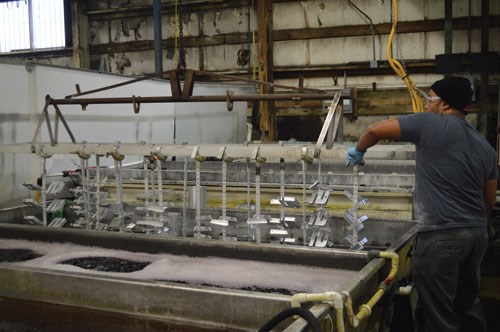
The plating operation offers coatings in anodizing Type II and Type III; right and matte tin; decorative and electroless nickel; zinc, silver, gold, copper and cadmium plating; and manganese, iron and zinc phosphate coatings.
Finishing Frustration
Handaly and Peha also started IDL Plastics Machining, a division that was created in response to demand for custom, high-quality performance parts and components made of a variety of plastics and with tight tolerances.
It was a natural extension of their services, Peha says. The shop uses alcohol as a coolant to keep the plastic parts cool without putting lubricants on the surface, which helps in holding tight tolerances. IDL’s in-house capabilities give it the flexibility to perform short runs for customers’ prototype development or mass production runs at the lowest cost.
But as their business grew, Handaly and Peha realized some frustration with outsourcing functions such as surface finishing, which almost all of their existing customers needed and which IDL wanted to control as much as possible.
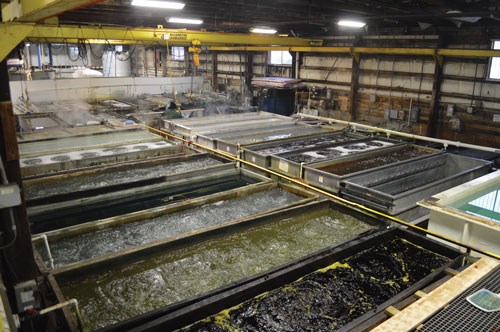
The plating facility has more than 20,000 square feet to perform numerous finishing operations.
“Our customers have a very high quality requirement, and we do, too,” Peha says. “When it came to finishing parts for our customers, that was an area of concern for us. We wanted to have some control over that process, and that becomes difficult when you have to send the work outside your facility.”
Most of the work that IDL was contracted to perform for the aerospace industry called for surface finishing that met Nadcap certification, an industry-managed approval system that emphasizes conformity assessment to accredit suppliers and define operational program requirements.
Nadcap isn’t easily attainable, nor cheap. The program began in 1989, when a partnership between U.S. government entities and several manufacturing industries recommended a solution to the problem of multiple supplier process control system audits that was driving up costs, and driving machining and finishing operation owners nuts. For instance, many machining and finishing shops underwent numerous audits at substantial costs, and many shop owners complained of duplications, redundant audits, unnecessary administration and higher cost for parts, which they say often provided no added value to the process.
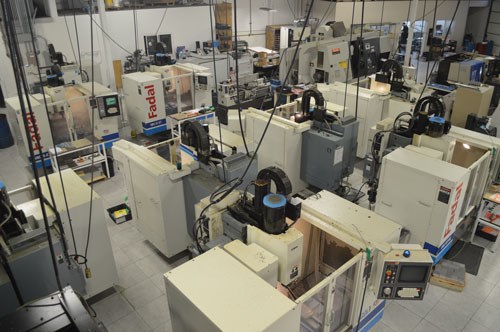
IDL Precision Machining began in 1987 and focuses on CNC milling and turning for its customers.
Nadcap Certification
Nadcap was designed to bring a standardized approach to quality assurance, as well as a reduction in redundant auditing in the aerospace industry. It isn’t an easy process certification to obtain and keep. It is extensive and costly in manpower and paperwork to maintain and manage.
In addition, many machine shops—especially those in the aerospace industry—were seeing diminishing capacity availability, as lead times grew to as much as seven weeks because of an increase in demand for finishing services.
“These were all very real problems that we needed to deal with as soon as possible,” Handaly says. “We needed the quality that our customers wanted, and we needed to get a shop that could handle our work in an efficient and timely manner.”
But with the pressure of keeping existing customers happy—as well as growing their business with new customers who demanded the same quality—Handaly and Peha started on a mission of solving their finishing problem in one of two ways:
1. Start their own finishing operation, which meant extensive capital expenditure and meeting grueling environmental regulations at the local, state and national level, as well as finding people to run the shop; or
2. Find an existing finishing shop for sale, buy it and convert it to Nadcap.
Using a broker, Handaly and Peha began searching for buildings near their existing facility in Mukilteo that could be used to construct a shop with full plating and anodize capabilities. They found a building that was housing used equipment and tanks for a nearby plating facility, and they asked the owners if they would be interested in selling or leasing the space.
The owners of that building, Production Plating, heard of IDL’s plans and made an offer to Handaly and Peha: Buy our existing plating and anodize facility and convert it to Nadcap certification.
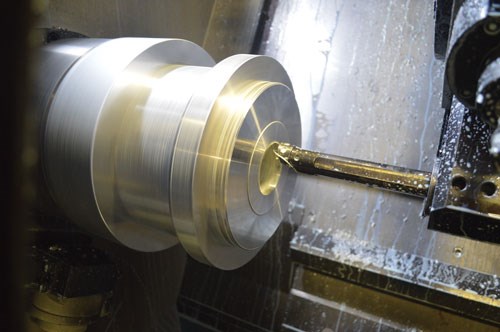
IDL’s in-house capabilities gives the shop the flexibility to perform short runs for customer’s prototype development.
Consistent Quality
Pat Keating and Marc Wislen were the owners of Production Plating, a company formed in 1972 that was on its third set of owners. The 20,000-square-foot facility housed numerous finishing operations:
- Anodizing Type II and Type III
- Bright and matte tin
- Decorative and electroless nickel
- Zinc, silver, gold, copper and cadmium plating
- Manganese, iron and zinc phosphate.
Keating and Wislen attempted the Nadcap certification several times without success. They hired several managers who they thought could get the company in line with the certifications requirements and continuing approvals, but it was much harder than they had envisioned.
“The biggest drawback is not having the right person to lead the project,” Keating says. “You can spend a lot of money and really not get anywhere.”
Wislen says that it takes several steps for the Nadcap certification process to work, and several times Production Plating began that process.
“The steps have to happen, but we just couldn’t seem to get to the pinnacle,” he says.
Keating reiterates that the key was having the right personnel who, not only knew the Nadcap requirements, but who knew the steps needed to get it done.
“We thought we had those people to help us get there, and it just didn’t work out for us,” he says. “It’s a tough decision to start and then have to stop, but if it’s not going to get you the certification, then it isn’t worth doing.”
Wislen says that Production Plating always performed well for its customers and the business grew, but that next step—the Nadcap certification—was needed for the shop to continue on a path of success.
“Quality comes from consistency, and if you are consistent on everything you do, then you’ll be successful,” he says. “Those good habits of consistency don’t happen overnight. It takes some time to get that down pat, and get those habits repeated again and again.”
Keating and Wislen remain in the coatings industry with a powder coating operation located up the road from Production Plating. They opened this division in 1996 specifically to meet their powder coating needs. It previously had been located in three different locations, but they eventually built this facility near their now former plating operation. The shop has about 30 employees, a five-stage wash system and a conveyorized powder coating line, and it can also do batch work.
Second Partner
The plating business is now the responsibility of Handaly and Peha, who have also brought in a partner in RB Enterprises, a machine shop run by Binh Mach that is one of the largest suppliers to nearby Boeing.
Mach—a Vietnamese refugee who grew up near Ho Chi Minh City and was just 11 when communists overtook South Vietnam in 1975—is a success story himself, having come to the U.S. as a teenager and learning the machining industry.
He worked for several California and Washington machining companies before taking a job with RB Enterprises, leaving there in 2008. A year later, the owner of RB asked him to return and run the company, because it was headed for bankruptcy. The owner became ill before Mach could re-join RB however, and the shop almost lost all its customers when the owner’s family took control.
“I bought it for almost nothing,” says Mach, who had escaped Vietnam on a 20-foot boat along with about 150 other refugees. “And now I owned the company.”
The transformation has been remarkable for Mach and RB Enterprises, which now counts Boeing, Lockheed and General Electric amongst its top customers. In fact, Boeing named Mach’s company as its “Supplier of the Year,” one of only 14 such awards given among more than 23,000 Boeing suppliers.
“Binh is such a great partner for us in getting this plating shop certified and running efficiently,” Handaly says. “Plus, he really is a great guy and a great inspiration.”
The process of acquiring the plating shop started for the new partners around October of last year and closed in January. They have hired a general manager for the shop and also someone who has Nadcap certification experience to lead the shop through its approval process.
While the Nadcap approval may take until October of this year to complete, readers of Products Finishing will be able to follow along as Handaly and Peha document their process with readers through blog postings on PFonline.com.
Ongoing Process
“I would hope everything would go smoothly and we wouldn’t have any concerns, but we know that isn’t always the case,” says Handaly, who learned with Peha and Minh as the due diligence process started that a new air handling system at the plating shop will cost about $200,000 to install.
“We have tried to plan for as much as we could,” Peha says. “That’s really all we can do. We do not have a lot of experience in metal finishing, but we are very eager to integrate that aspect of the operation into our machining operations.”
After IDL takes over the operation of the plating shop and hires its managers, the owners will begin the process of contacting the Nadcap organization and registering through a questionnaire about their operation and process.
From that, Nadcap provides information about items such the scope of the audit, timelines and costs, as well as checklists and schedules. When the time is right, auditors will swarm the facility and pick apart the organization and its processes to ensure it is meeting the standards outlined in the certification.
Summation: a timely and often costly proposal, but one with deep rewards if a shop wants to grow its business.
Both Handaly and Peha laugh when they look back on their transformation during the past five years, going from employees to owners of not only a machining shop, but now a plating operation as well.
“This is stressful, there is no argument about that,” Handaly says. “But we knew what we were getting into, and at the end of the day, we couldn’t be happier with where we are.”
For more information on IDL Precision Machining, please visit idlprecision.com.
Dean Handaly's Online Journal
For the next several months, IDL Precision Machining owners Dean Handaly and Robert Peha will be writing a journal for Products Finishing on PFonline.com, talking about their ongoing quest to get their new plating operation Nadcap-certified. The owners promise the good, the bad and the ugly through this long journey, and hope to provide a road map for others.
Originally published in the March 2016 issue.
RELATED CONTENT
-
Masking for Surface Finishing
Masking is employed in most any metal finishing operation where only a specifically defined area of the surface of a part must be exposed to a process. Conversely, masking may be employed on a surface where treatment is either not required or must be avoided. This article covers the many aspects of masking for metal finishing, including applications, methods and the various types of masking employed.
-
A Chromium Plating Overview
An overview of decorative and hard chromium electroplating processes.
-
Choosing and Troubleshooting Copper Electroplating Processes
Learn more on this inexpensive and highly efficient process.














